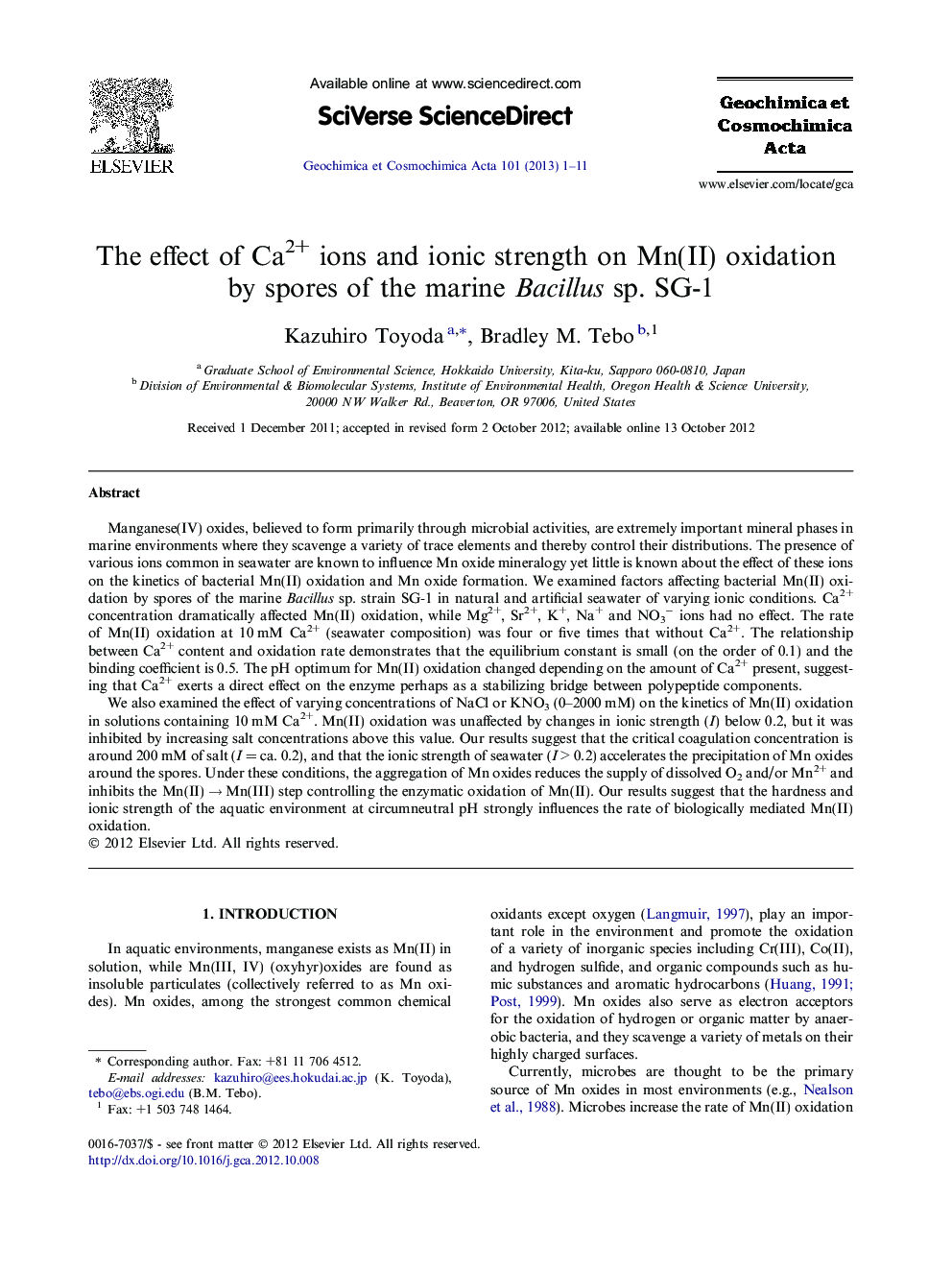| Article ID | Journal | Published Year | Pages | File Type |
|---|---|---|---|---|
| 4702520 | Geochimica et Cosmochimica Acta | 2013 | 11 Pages |
Abstract
We also examined the effect of varying concentrations of NaCl or KNO3 (0-2000 mM) on the kinetics of Mn(II) oxidation in solutions containing 10 mM Ca2+. Mn(II) oxidation was unaffected by changes in ionic strength (I) below 0.2, but it was inhibited by increasing salt concentrations above this value. Our results suggest that the critical coagulation concentration is around 200 mM of salt (I = ca. 0.2), and that the ionic strength of seawater (I > 0.2) accelerates the precipitation of Mn oxides around the spores. Under these conditions, the aggregation of Mn oxides reduces the supply of dissolved O2 and/or Mn2+ and inhibits the Mn(II) â Mn(III) step controlling the enzymatic oxidation of Mn(II). Our results suggest that the hardness and ionic strength of the aquatic environment at circumneutral pH strongly influences the rate of biologically mediated Mn(II) oxidation.
Related Topics
Physical Sciences and Engineering
Earth and Planetary Sciences
Geochemistry and Petrology
Authors
Kazuhiro Toyoda, Bradley M. Tebo,
